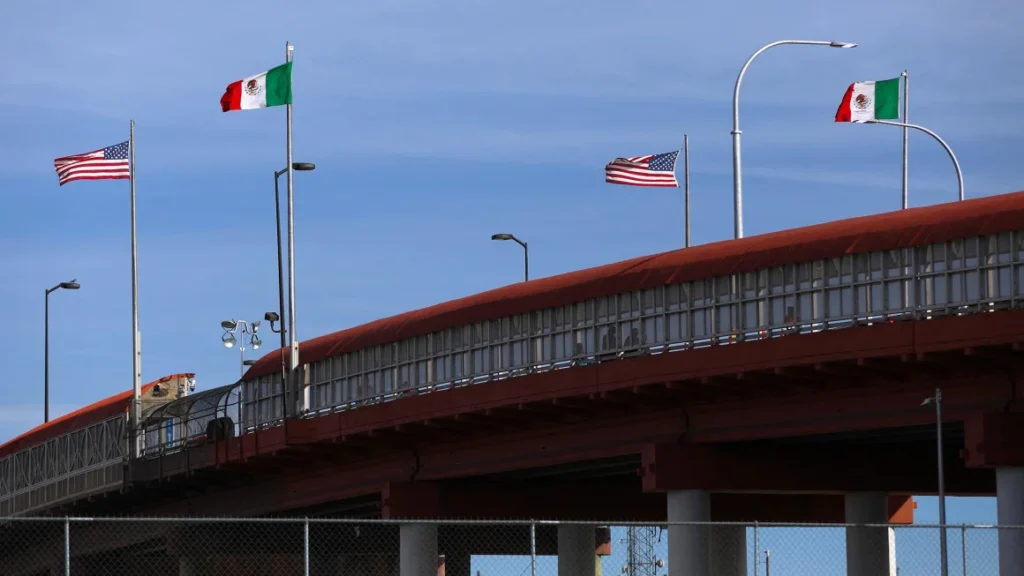
Trumps’ Guest Worker Paradox promise : Donald Trump, who campaigned with the rallying cry of “Build American, Buy American, and Hire American,” has faced scrutiny for the hiring practices within his own businesses. Despite pledging to prioritize American workers, Trump-affiliated enterprises, including the iconic Mar-a-Lago Club, his golf resorts, and a Virginia winery, have increasingly relied on foreign guest workers. In fact, 2024 marked a record year, with his businesses receiving approval to hire 209 foreign workers—nearly double the figure from a decade ago.
A Growing Reliance on Foreign Workers
Trump’s properties largely employ foreign laborers through the H-2B visa program, which allows businesses to hire temporary workers when there are insufficient qualified Americans available. These roles span various positions, including cooks, housekeepers, and desk clerks. Trump has defended the practice, citing the seasonal nature of his businesses and the difficulty of attracting American workers to short-term jobs. However, critics argue that offering higher wages or additional perks could attract more domestic applicants. Trump’s Guest Worker Paradox policy will work or not it is not sure.
Forbes first reported this year that Trump businesses hired more foreign workers than ever before, drawing attention to what some see as a disconnect between Trump’s campaign rhetoric and his business practices. While proponents of the H-2B program highlight its importance in seasonal industries like hospitality, detractors contend it undermines American workers’ bargaining power.
The Role of Top Allies and Administration Picks
Trump is not alone in leveraging guest-worker programs. Elon Musk, one of Trump’s major political supporters, has sought government approval for about 2,000 foreign workers through his companies, including Tesla and Neuralink. Similarly, businesses linked to Trump’s nominees for Commerce Secretary and Social Security Commissioner have also used these programs extensively.
Mark Krikorian, a leading advocate for stricter immigration controls, criticized such practices, arguing that guest-worker programs often benefit businesses at the expense of American workers. He suggested that industries relying on temporary labor, like hospitality, could develop domestic initiatives to attract workers—for example, by providing free airfare and lodging to young Americans from regions with limited job opportunities.
Policy vs. Practice: The Broader Implications
Trump’s hiring practices have exposed tensions within his political base. While many conservative allies advocate for reducing foreign guest-worker visas, Trump’s businesses continue to benefit from the program. A policy blueprint called Project 2025, authored by former Trump officials, even proposed capping and gradually phasing out the H-2B visa program. Despite distancing himself from this proposal during the campaign, Trump later selected a co-author of the document for a key role in his administration. It is very difficult for Tramp for implement the Guest Worker Paradox in US.
This paradox highlights the complexity of America’s labor market, which depends heavily on immigrant labor for certain industries. Chloe East, an economist specializing in immigration policy, emphasized that immigrants are integral to the U.S. workforce, despite being scapegoated by some politicians. Efforts to curtail guest-worker programs, she warned, could harm businesses reliant on seasonal labor.
Hospitality Industry Challenges
The challenges of seasonal employment are particularly acute in places like South Florida, home to Mar-a-Lago. Julia Dattolo, CEO of CareerSource Palm Beach County, noted that local employers must advertise jobs to Americans before turning to guest workers. Yet, with low unemployment rates and high living costs, filling these positions remains difficult. She described the winter hospitality season as “crazy,” underscoring the reliance on foreign labor to meet demand.
Looking Ahead: The Trump Organization and U.S. Labor Policy
Since 2008, Trump businesses have consistently sought guest-worker approvals, securing over 2,100 positions in total. This reliance has steadily increased, with recent years marking the highest levels yet. While these positions offer wages slightly above minimum levels—$16 per hour for bartenders and servers at Mar-a-Lago—they include strict hiring criteria such as background checks, drug tests, and English proficiency.
As Trump prepares to assume office again, his administration faces critical decisions about the future of guest-worker programs. During his first term, Trump oscillated between expanding temporary visa quotas and restricting certain nationalities from accessing them. His next term could bring further debates about balancing economic demands with the political promise of putting American workers first.
This juxtaposition of campaign rhetoric and business reality raises fundamental questions about the future of U.S. labor policy and the role of immigrant labor in sustaining critical industries.
For read specific news visit again https://khudaniajournal.com

